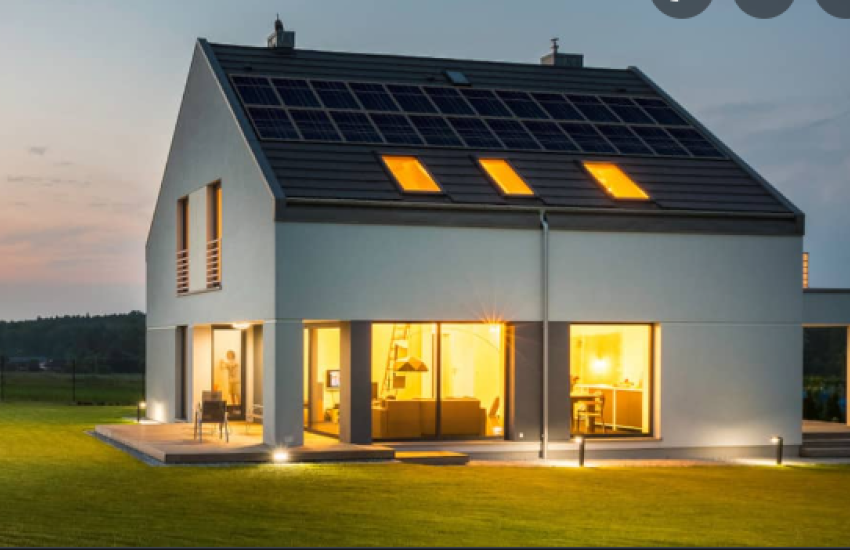How does the home battery storage system work?
Lithium ion battery system is the most commonly used type and consists of several parts:
The battery cell is manufactured and assembled by the battery supplier into a battery module (the smallest unit of the integrated battery system).
The battery rack is composed of connection modules that generate DC current. These may be arranged in multiple racks.
An inverter that converts a DC output of a battery into an AC output.
A battery management system (BMS) controls the battery and is usually integrated with factory manufactured battery modules.
Generally speaking, solar cell storage works like this: the solar cell panel is connected to the controller, which in turn is connected to the battery rack or battery pack that stores it. When required, the current from the battery must be converted from alternating current (AC) to direct current (DC) through a small inverter, and vice versa. The current then passes through a meter and is supplied to the wall outlet of your choice.
How much energy can a home battery energy storage system store?
The energy storage power is in kilowatt hours (KWH). The battery capacity can range from 1 kwh to 10 kwh. Most families choose a battery with a storage capacity of 10 kwh, which is the output when the battery is completely replaced (minus the minimum amount of power that the battery needs to remain on). Considering how much power the battery stores, most homeowners usually only choose their most important appliances to connect to the battery, such as the refrigerator, several sockets to charge their mobile phones, lights and WiFi systems. In the case of a complete power failure, a typical 10 kwh battery will store electricity for 10 to 12 hours, depending on the battery required to power the battery. A 10 kwh battery can run a refrigerator for 14 hours, a TV for 130 hours, or a single LED bulb for 1000 hours.
What are the benefits of home battery storage?
With home battery storage, you can increase the amount of spontaneous electricity consumed instead of being consumed from the grid. This is called self use power, that is, the ability of households or enterprises to generate electricity by themselves. It is an important concept of energy transformation today. One of the advantages of self use power is that customers only use the grid when they do not use self generation, which can save costs and avoid the risk of power failure. Energy independence from self consumption or off grid means that you do not rely on utilities to meet your energy needs, so you are protected from soaring prices, supply fluctuations and power outages. If one of the main reasons for installing solar panels is to reduce carbon emissions, adding batteries to your system can help you achieve maximum performance in reducing greenhouse gas emissions and household carbon footprint. The home energy storage system is also cost-effective, because you will use a completely free clean, renewable energy source: the sun to store electricity.




